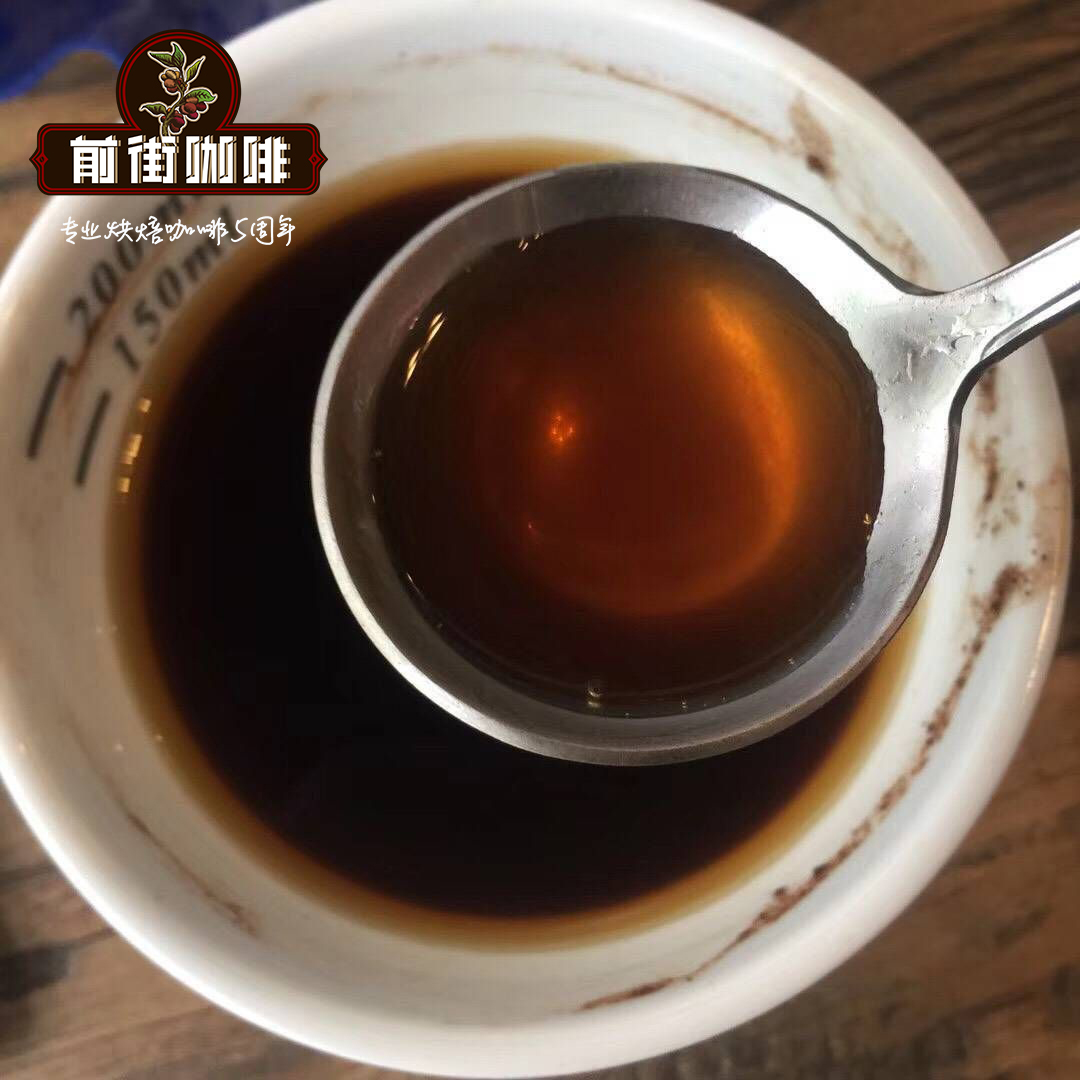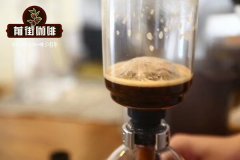Characteristics of hand-flavored flavor of coffee beans in Rwanda Murundo CWS processing plant

Professional coffee knowledge exchange more coffee bean information please follow the coffee workshop (Wechat official account cafe_style)
Rwanda has always been given good coffee growing conditions: high altitude, volcanic soil, rich sunshine and Cabernet Sauvignon. Rwanda is also known as the "country of a thousand mountains" because many coffee trees are planted on mountains between 1700 and 2000 meters above sea level. Rwandan coffee is a world-class enjoyment, not only more balanced than Kenya coffee, but also clear enough to compete with Chinese and American coffee. Generally speaking, Rwandan coffee has the sweetness of fruit, the fragrance of flowers and the aftertaste of black tea. The mode of operation of coffee production lines often depends on the country of production, while coffee in Rwanda is produced entirely by small farmers rather than large-scale enterprises. Compared with farms in Brazil, even small ones reach 20 hectares, while the 0.1-0.2 hectares in Rwanda are negligible.
Murundo CWS is Teuscher Invest Ltd. One of the two washing plants it owns. The company produces, processes and exports fully washed espresso under the trademark Kivubelt coffee. The story of how Kivubelt coffee is processed in Murundo CWS can be said to be one of the very lucky situations. In fact, Kivubelt Coffee Manor is made up of three places with more than 90000 trees. It is 20 kilometers from Murundo CWS.
In 2014, two years after planting, the farm produced the first batch of coffee. However, the estate does not have CWS to handle cherries. A better solution is to temporarily lease CWS ready to run, which is how Kivubelt Coffee eventually becomes Murundo. Due to the insufficient number of cherries on the estate compared to the capacity of the facility, management decided to buy cherries from small farmers in Mahembe, where Murundo CWS is located, to improve efficiency.
It was supposed to be a long-term relationship between the more than 500 small farmers who evolved into Mahembe and the owners of Murundo CWS who bought wet mills in 2016. The quality and potential of cherries brought to CWS is one of the main goals that Kivubelt Coffee must achieve. The goal is to bring a good cup of coffee to consumers. A really unforgettable cup.
To ensure consistent quality, Murundo CWS staff must explain and show farmers how and when to pick ripe cherries. At CWS, cherry selection is subject to strict quality control. After floating in the water, only accept ruby-like ripe cherries.
The cherries were then pulped by dry and wet fermentation for about 12 hours. After that, wash the coffee beans thoroughly with clean spring water. Then slowly dry the fully washed parchment beans and sort them by hand several times. When beans reach 12% moisture, put them in bags and store them in a dry, well-ventilated warehouse.
Since 2014, Murundo CWS owners and their teams have become very active members of the Mahembe community. They regularly participate in community services such as Umuganda and organize capacity-building meetings with small farmers to improve consistency in coffee quality.
In December 2017, Kivubelt Coffee paid an extra 5 Rwfr / kg as a bonus for all farmers who brought cherries in Murundo CWS that year.
Socially, Kivubelt coffee owners and their team members are well aware of the fragility of life in rural communities, which is why the company is committed to providing health care throughout 2018 to the 100 most vulnerable people in locally selected Mahembe. The authorities.
Murundo WCS has become a place where Teuscher Invest Ltd's small farmers through Kivubelt Coffee and Mahembe can process and produce extraordinary high-end specialty coffee for world supply.
Location:-Spur02 * 13.788 / 39 / s-
Eavo 029 * 16.707 / 39
Province: Western District
City: Nyamasheke
Zone: Mahembe
Altitude: at 1708m ASL
The location of the farm is between 1515m-1900m
Soil type: volcanic soil, deep and well drained
Average value of soil pH: 3.9-4.8
Precipitation range: 1200mm-1600mm
Temperature: 18o-20 oC
CWS owner: TEUSCHER INVEST LTD (Kivubelt Coffee)
Status: private company
Creation date: 2008
Processing system: washing processing
Drying table: 80 tables, full sun, 12% water content, controlled by the bank
Warehousing: a warehouse with natural ventilation system and pallets
Road traffic: fairness
Water source: mountain natural
Quanyuan Energy: electric Power
Environmental measures: natural trees
How to bake Rwandan coffee?
Because of the altitude of Rwandan coffee, its density is high. Qianjie Coffee uses a lot of calories in the roasting process when baking boutique African coffee. Hard beans like this can transfer heat well, so a higher lower bean temperature and a higher heating rate will be better.
At the same time, the alcohol thickness of Rwandan coffee is very good, so you can also try to extend the flavor development period Development time and burst period to emphasize alcohol thickness. Lightly roasted Rwandan coffee is sour and pleasant, but don't be afraid to create more syrup-like thickness / taste in the coffee.
Qianjie Coffee recommends that Rwandan coffee be brewed in 89-91 degrees water, with a "grassy aroma" and a tropical climate. In addition to the sweetness of fruit, this coffee can also give people a feeling of freshness, clearness and freshness. Bourbon coffee grown in Rwanda is amazing for its sweet fruit, full-bodied, unrestrained and lingering aftertaste. This coffee has a delicious, citrus sweetness and a deep chocolate color, with red apples, cherries, cinnamon and honey, high sweetness and balance, cinnamon, almonds and chocolate finish.
Qianjie coffee: Guangzhou bakery, the store is small but a variety of beans, you can find a variety of unknown beans, but also provide online store services. Https://shop104210103.taobao.com
Important Notice :
前街咖啡 FrontStreet Coffee has moved to new addredd:
FrontStreet Coffee Address: 315,Donghua East Road,GuangZhou
Tel:020 38364473
- Prev

Information introduction of Kailong Mountain Coffee Farm in Xidamo Guji producing area in 2018 season _ Sidamo single Coffee
Professional coffee knowledge exchange more coffee bean information please follow Coffee Workshop (Wechat official account cafe_style) Ethiopia Sidamo Coffee Guji Kaiyong Mountain Water washing 2018 production season Kailong Mountain single Farm was founded by Ato Esmael and his family in 2012, the whole farm covers an area of about 300ha, of which more than 200ha are still original reserved forest. Kaiyong Mountain Farm
- Next

What is the method of coffee processing in Rwanda? Introduction of Kinazi Coffee processing Plant in Rwanda
For more information on coffee beans, please follow the Coffee Workshop (official Wechat account cafe_style) once upon a time, coffee was handled differently from farm to farm, with beans from different farms gathered and mixed with neighboring ones. After the genocide, the country began to open up to accept foreign aid, and revitalizing the coffee industry has become the country's top priority. So
Related
- Detailed explanation of Jadeite planting Land in Panamanian Jadeite Manor introduction to the grading system of Jadeite competitive bidding, Red bid, Green bid and Rose Summer
- Story of Coffee planting in Brenka region of Costa Rica Stonehenge Manor anaerobic heavy honey treatment of flavor mouth
- What's on the barrel of Blue Mountain Coffee beans?
- Can American coffee also pull flowers? How to use hot American style to pull out a good-looking pattern?
- Can you make a cold extract with coffee beans? What is the right proportion for cold-extracted coffee formula?
- Indonesian PWN Gold Mandrine Coffee Origin Features Flavor How to Chong? Mandolin coffee is American.
- A brief introduction to the flavor characteristics of Brazilian yellow bourbon coffee beans
- What is the effect of different water quality on the flavor of cold-extracted coffee? What kind of water is best for brewing coffee?
- Why do you think of Rose Summer whenever you mention Panamanian coffee?
- Introduction to the characteristics of authentic blue mountain coffee bean producing areas? What is the CIB Coffee Authority in Jamaica?

